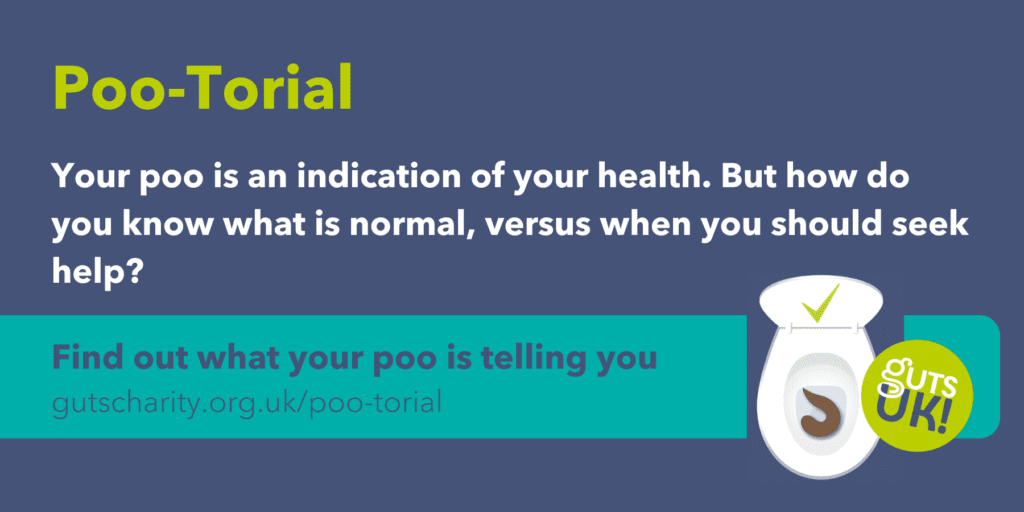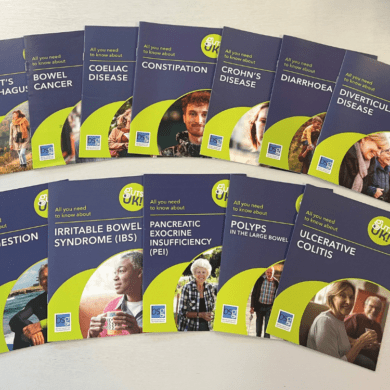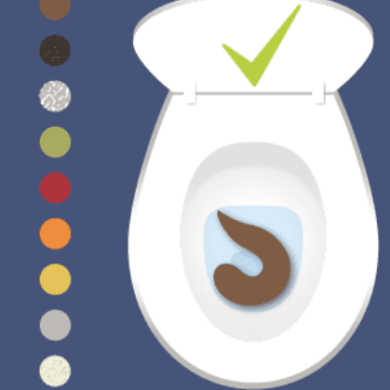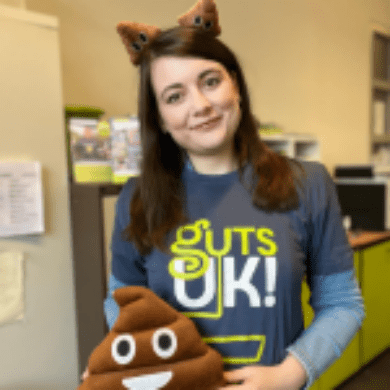Coeliac Disease Awareness Month
May 2026
May marks Coeliac Disease Awareness Month, which is an autoimmune condition.
At Guts UK Charity, we raise vital awareness for coeliac disease, provide expert, patient information to those who need it most, when they need it most and fund research into this gut condition.
What is coeliac disease?
Coeliac disease is an autoimmune condition (a condition in which the body’s immune system mistakes healthy tissues as foreign and attacks them). It is not an allergy or intolerance. Individuals who have coeliac disease can have an adverse response to gluten when they eat it. Damage to the lining of the small bowel is caused by the gluten because the body ends up attacking its cells.

Studies show that approximately 1 in 100 people in the UK have coeliac disease. However, it is thought that nearly 7 out of 10 people remain undiagnosed. This means about half a million people are living with coeliac disease unknowingly.
Mia’s coeliac disease story
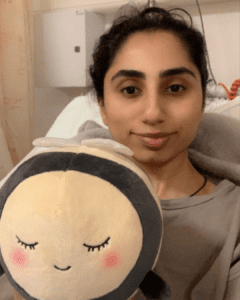
“I received a diagnosis of Irritable Bowel Syndrome (IBS), then had tests for coeliac disease and Inflammatory Bowel Disease (IBD). Blood tests showed I was positive for having coeliac disease then the wait began for an endoscopy (camera test down my throat). In two months, I lost three stone. My bowel was so damaged that I’d bleed when going to the toilet to empty my bowels. A diagnosis of coeliac disease was later confirmed.”… Read Mia’s story here.
Imogen’s coeliac disease story

Imogen’s coeliac disease story is shared by her mum, Kerry:
“I had never heard of coeliac disease before the consultant mentioned it. I searched on Google for it straight away. I’d always thought gluten-free diets were just “fad” diets, and I had no idea they were connected to an autoimmune disease. I cried when I realised the challenges that lay ahead: the unknown, the changes we’d have to make, and the future Imogen would have to navigate with this condition.“… Read Imogen’s story here.
To read more stories from people affected by coeliac disease, visit the stories section of our website.
Why is awareness of coeliac disease so vital?
Raising public awareness of coeliac disease is crucial. Through raising public awareness, people can feel empowered to know their normal and know when to seek help. People can learn more about coeliac disease and get to better grips with their guts.

Some people who have coeliac disease don’t actually know they have it and it is sometimes diagnosed whilst looking into another health problem. It has similar symptoms to other conditions like Irritable Bowel Syndrome (IBS). This can lead to possible misdiagnosis if it is not tested properly. If you suspect you have coeliac disease, it’s important to go to your GP and get this checked out. Do not change your diet before you are tested, gluten antibodies need to be present in the blood for a correct diagnosis. Gluten is found in food containing wheat, barley and rye.
We must raise public awareness and help the UK get to grips with their guts, person by person, gut by gut.
Guts UK is committed to:
- Raising awareness of the symptoms of coeliac disease, empowering people to reach out for help and reach out for it sooner.
- Funding life-changing research into coeliac disease, working towards improved understanding of what causes the condition which can help to inform future treatment.
- Providing expert information on coeliac disease to patients and families. Knowledge is power. We help to get trusted information into the hands of those who need it most, when they need it most.
The importance of checking your poo
Always remember, a new, prolonged change in your bowel habit that has lasted for 4 weeks or more should always be discussed with your doctor.
Not sure where to start when it comes to checking your poo? Guts UK charity’s Poo-Torial will guide you through the color, consistency and frequency of your poo.
Our current research into coeliac disease

Dr Mohamed Shiha was awarded a Guts UK/BSG Trainee Award in 2023.
Dr Shiha is currently working on a project aiming to offer an alternative test to people suspected of having coeliac disease, who often experience discomfort from having a traditional endoscopy (camera test).
He told us: “People are commonly given sedatives (medicine to help them relax) during the procedure, leading to them needing time off work. The new, alternative test will mean people will not cough or gag or require sedation.” However, it is not yet known if this ultra-thin endoscope can accurately diagnose coeliac disease.

He aims to invite people who have suspected coeliac disease to try either the standard or thinner nasal endoscopy and compare both results. He will then see if both results match when it comes to diagnosing the disease. People who take part will also be asked about their experiences of the procedure.
Research projects such as these are instrumental in helping the UK to get to grips with guts. If coeliac disease can be diagnosed earlier and in a much less uncomfortable way, this could lead to faster treatment and improved patient experiences. Together, let’s get to grips with guts.
What other organisations can help?
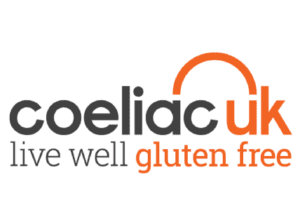
Coeliac UK is the leading UK charity supporting people diagnosed with coeliac disease.
To find out more on what Coeliac UK’s membership services include, head to our coeliac disease patient information and scroll to the bottom.
How can I help?

You can help us raise awareness of coeliac disease by:
- Following us on social media and sharing our awareness and information posts during the month itself. You never know who we might reach and help together. Facebook, LinkedIn, Instagram, Twitter/X.
- Share your own experience, or a loved ones experience with coeliac disease to your own circles, and on your own social media channels. To submit your interest in sharing your story, please fill in and submit our story-sharing form.
- Fundraise for Guts UK Charity to help us abolish the taboos surrounding digestive health, and get to grips with guts. You can fund life-changing research, and empower people to seek help sooner.
- Donate £3 per month to Guts UK Charity. For giving up just one takeout drink per month, you can change and save lives.
